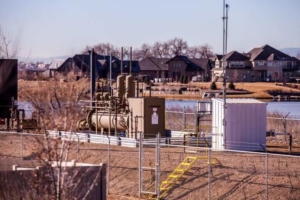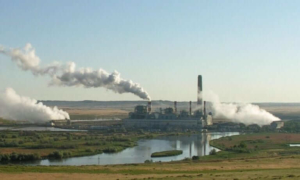Conservation Colorado Victory Fund to spend $3.2 million on upcoming elections
Walker Stapleton has been named to the signature “Dirty Dozen in the States” list for 2018. This list, modeled after LCV Victory Fund’s federal “Dirty Dozen,” identifies the 12 worst state-based candidates for our environment and way of life running for state office across the nation.
In order protect the Colorado way of life and ensure that our Governor reflects the conservation values of voters, Conservation Colorado Victory Fund is announcing a $3.2 million political program to defeat Walker Stapleton and elect pro-conservation candidates to the state legislature.
“Colorado voters expect their governors to value our way of life and our land, air, and water as much as they do,” said Conservation Colorado Victory Fund Executive Director Kelly Nordini. “Walker Stapleton seems to be almost completely focused on drilling for oil and gas rather than making Colorado a leader on renewable energy, clean air, and public lands.”
Conservation Colorado Victory Fund’s 2018 program will be the largest political program the committee has ever run. It will feature a robust field program to knock doors throughout the state and include a comprehensive digital and mail program to ensure voters know where candidates stand from the governor’s race to the state House.
The reasons for Walker Stapleton’s inclusion in the “Dirty Dozen” are clear. As state treasurer, Stapleton chose to work for himself and side with special interests, not the people of Colorado. As a candidate for governor, he is running on policies that will benefit corporate polluters.
“When Coloradans need a smart leader who shows up and fights for their priorities, Stapleton would let corporate polluters and other special interests dictate the future of our state,” said Nordini.
Background
- As a candidate for governor, Stapleton flaunted his reliance on oil and gas industry donations and publicly pleaded for those special interests to continue to flood his campaign with contributions. He has stated that a major reason he is running is to offer a “full-throated defense” of Colorado’s oil and gas industry.
- Stapleton has spread misinformation about the high costs of renewable energy, when Xcel’s Colorado Energy Plan has shown historically low costs and savings for consumers.
- Stapleton isn’t just supported by corporate polluters; he is one. Facilities he ran in California were found in violation of water regulations more than 75 times, including instances of using tens of thousands more gallons of water than allowed.
- Stapleton has spoken out against expanding wilderness areas and refused to say if he would defend Colorado’s public lands from the Trump administration’s efforts to rollback national monuments to appease extractive industry players.
About the “Dirty Dozen in the States”
Modeled after LCV Victory Fund’s federal “Dirty Dozen,” the state version highlights 12 of the most anti-environment state-level candidates from around the country who state LCVs are working to defeat for the 2018 election cycle. Members of the “Dirty Dozen in the States” have consistently sided against the environment and — regardless of party affiliation — are running in races in which an LCV state affiliate has a serious chance to affect the outcome.
About Conservation Colorado Victory Fund
Conservation Colorado Victory Fund is a program of Conservation Colorado, a grassroots organization that mobilizes people to advance pro-conservation policy and elect conservation-minded leaders.
Paid for by Conservation Colorado Victory Fund and not authorized by any candidate or candidate’s committee. Nikki Riedt, registered agent.

 One bill — HB 1071 — was an attempt to clarify the mission of the Colorado Oil and Gas Conservation Commission (COGCC). It currently states that the COGCC is in charge of fostering and regulating oil and gas in Colorado. This bill would have changed this contradictory mission to prioritize health, safety, and the environment over industry profits.
One bill — HB 1071 — was an attempt to clarify the mission of the Colorado Oil and Gas Conservation Commission (COGCC). It currently states that the COGCC is in charge of fostering and regulating oil and gas in Colorado. This bill would have changed this contradictory mission to prioritize health, safety, and the environment over industry profits.
 Methane, a potent greenhouse gas, leaks from oil and gas sites across the country, wasting taxpayer dollars and exacerbating climate change. The Bureau of Land Management’s Methane Rule established commonsense standards that require oil and gas companies to deploy readily available, cost-effective measures to reduce methane lost through venting, flaring, and leaks. While the rule itself is still in question, there’s no doubt that Sen. Gardner went against the wishes of most Coloradans and voted to repeal the rule.
Methane, a potent greenhouse gas, leaks from oil and gas sites across the country, wasting taxpayer dollars and exacerbating climate change. The Bureau of Land Management’s Methane Rule established commonsense standards that require oil and gas companies to deploy readily available, cost-effective measures to reduce methane lost through venting, flaring, and leaks. While the rule itself is still in question, there’s no doubt that Sen. Gardner went against the wishes of most Coloradans and voted to repeal the rule.

